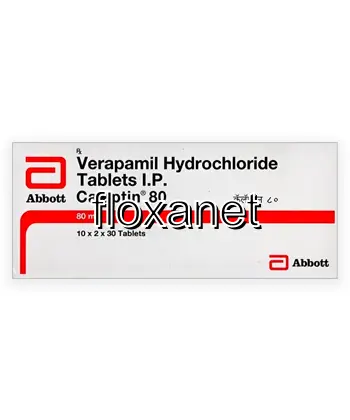| Package | Dosage | Price | Price per Dose | |
|---|---|---|---|---|
| Dosage: 40mg | ||||
| 270 pill | 40mg | $74.94 | $0.28 | |
| 120 pill | 40mg | $41.63 | $0.35 | |
| 90 pill | 40mg | $34.69 | $0.39 | |
| 60 pill | 40mg | $27.75 | $0.46 | |
| Dosage: 120mg | ||||
| 270 pill | 120mg | $169.32 | $0.62 | |
| 120 pill | 120mg | $84.65 | $0.71 | |
| 90 pill | 120mg | $69.39 | $0.78 | |
| 60 pill | 120mg | $55.51 | $0.93 | |
| 30 pill | 120mg | $36.07 | $1.21 | |

Verapamil Hydrochloride Description
Introduction to Verapamil Hydrochloride
Verapamil Hydrochloride is a widely used medication in the treatment of various cardiovascular conditions. It belongs to the class of drugs known as calcium channel blockers. This medication works by relaxing the blood vessels and reducing the heart's workload, which helps to regulate blood pressure and prevent angina. It is available in various forms, including tablets and extended-release capsules, making it a versatile option for different patient needs.
How Verapamil Hydrochloride Works
The primary mechanism of Verapamil Hydrochloride involves inhibiting calcium ions from entering cardiac and vascular smooth muscle cells. This inhibition results in a decrease in muscle contraction strength and vascular tone. As a consequence, blood pressure drops, and the oxygen demand of the heart decreases, alleviating chest pain. The drug also slows down the electrical conduction within the heart, making it useful in treating certain arrhythmias. Its dual action on both blood vessels and the heart positions it as an effective treatment for multiple cardiac issues.
Benefits and Effectiveness
Many patients find Verapamil Hydrochloride effective in managing hypertension and angina. Its ability to reduce blood pressure helps lower the risk of stroke and heart attack over time. Patients with arrhythmia often turn to this medication because of its capacity to stabilize heart rhythm. Its extended-release formulations provide a steady release of the drug, helping to maintain consistent therapeutic levels throughout the day. Overall, users report a significant improvement in their symptoms and quality of life when adhering to the prescribed regimen.
Potential Side Effects
Like all medications, Verapamil Hydrochloride may cause side effects, though not everyone experiences them. Common adverse effects include headaches, dizziness, fatigue, and nausea. Some individuals may experience swelling in the ankles or feet due to fluid retention. Rarely, more serious effects such as irregular heartbeat, low blood pressure, or allergic reactions can occur. It is important for users to monitor their health and report any unusual symptoms to their healthcare provider promptly.
Usage and Precautions
Proper usage of Verapamil Hydrochloride involves following a healthcare professional’s instructions carefully. The medication is usually taken orally, with or without food, at the same times each day to maintain consistent blood levels. Patients should inform their doctor of any existing medical conditions, especially heart problems, liver or kidney issues, or if they are taking other medications that could interact with Verapamil. Alcohol consumption should generally be avoided as it can increase side effects such as dizziness and low blood pressure.
Conclusion
Overall, Verapamil Hydrochloride is a trusted option for managing various heart-related conditions. Its efficacy in controlling blood pressure, reducing angina symptoms, and stabilizing heart rhythm makes it a valuable part of many treatment plans. As with any medication, proper medical supervision is essential to maximize benefits and minimize risks. Patients should always communicate openly with their healthcare providers to ensure safe and effective use of this medication. When used correctly, Verapamil Hydrochloride can significantly improve cardiovascular health and patient well-being.